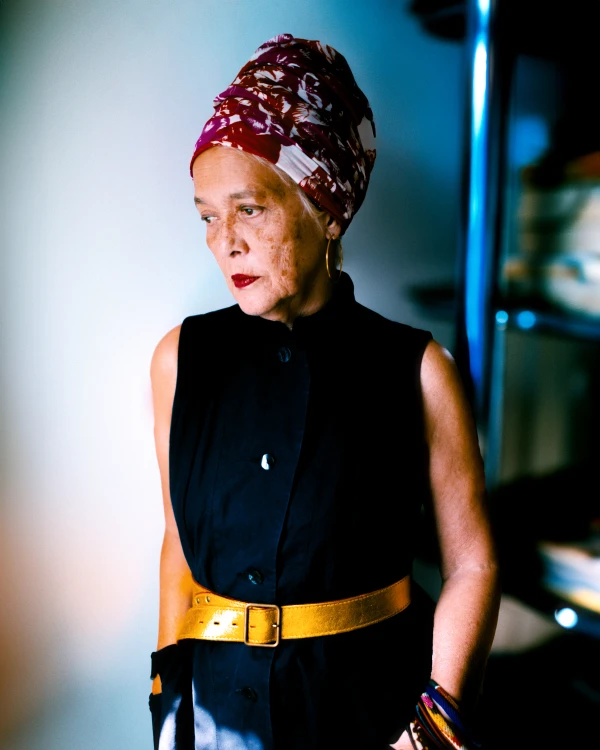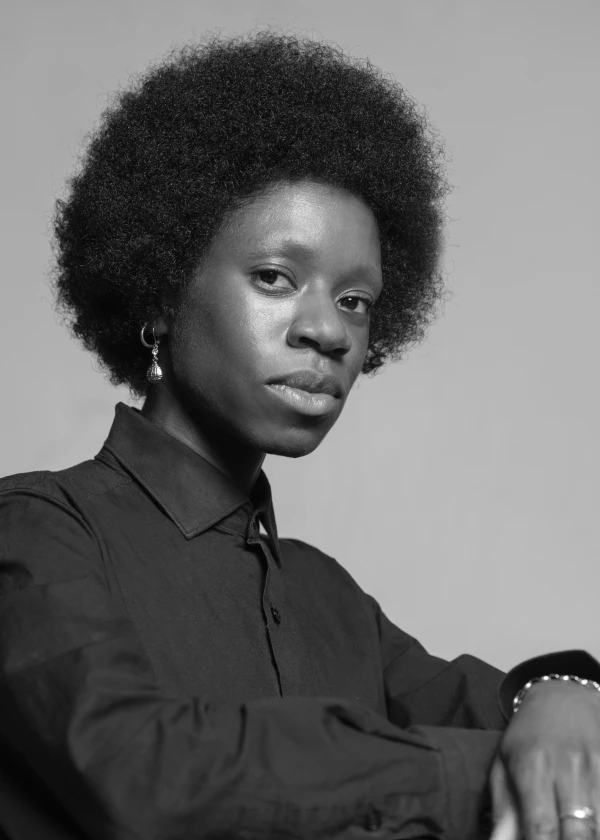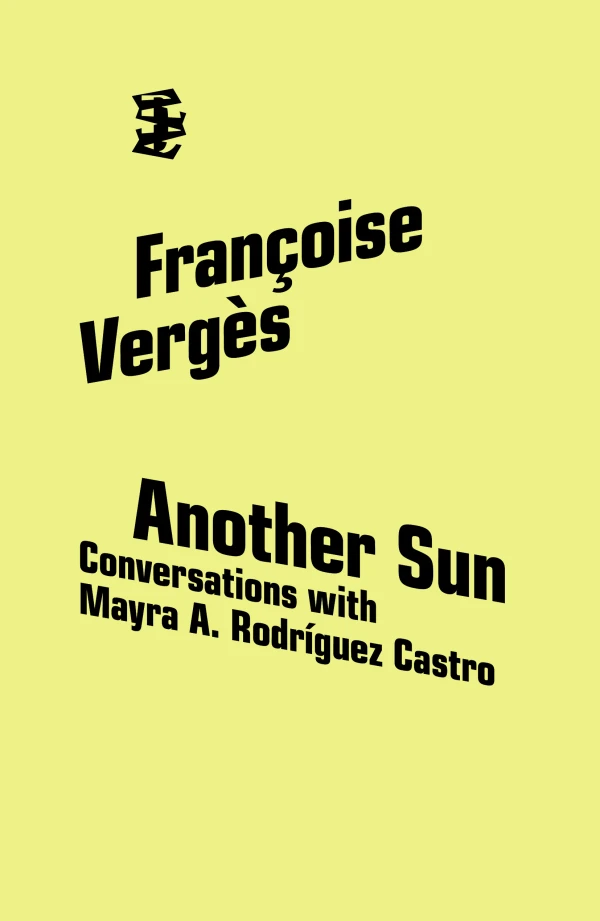Fanny Howe was born on 15 October 1940 in Buffalo, New York. She was professor emerita in literature at the University of California, San Diego, and the author of more than fifty books of poetry and prose. Howe taught literature and writing throughout her life and mentored a generation of American poets, activists and scholars working at the intersection of experimental and metaphysical thinking. She died on 8 July 2025 in Lincoln, Massachusetts.
Forthcoming
Holy Smoke
Holy Smoke
Fanny Howe
At once evocative and subtly incisive Howe’s writing seems almost like a new language, a language that has been in hiding. She can make the familiar haunting and the ordinary a provocation. She has written some of the remarkable books of her time.
A wonder of acid wit and Americana, Holy Smoke turns grief into a game and chaos into canticles. Bricolage at its best: incisive, inventive and intimate. It’s the exact work I needed in my life.
Why they said, “Your real name is Anon,” I'll never know . . . But now that I have a name, I know I must write . . . I’m scared, but feel it is time to be really bad.
Republished for the first time since its 1979 release, in a new revised edition, Holy Smoke is an account of the frenzy and paranoia of United States politics refracted through one individual’s psyche. With her theme of a child disappeared – and all that that phrase carries with it – Howe captures the chaos of reality in her salient mix of poetry and prose. Readers will find it hard to believe that this book, which gives fresh sense to the demand for universal human rights, was written in the last century.
- 978-1-0684395-1-3
- 21.6 x 13.9 cm
- 116 pp.
- Paperback
- December 2025
About the author
Endorsements (3)
Howe prefers the clarity of misunderstanding to the blur of certainty.
Poet of unsettled dreams.
Reading her fiction feels something like facing a patch of wilderness—startling, beautiful, yet terrifyingly mysterious.
Press (2)
Upcoming (1)
| 11 December | Brussels | Fanny Howe tribute at Celador |
Tosquelles: Healing Institutions
£ 20

Tosquelles: Healing Institutionswith texts by Francesc Tosquelles, trans. Robert Hurley and Mara Faye Lethem
Tosquelles: Healing Institutions
Joana Masó
with texts by Francesc Tosquelles, trans. Robert Hurley and Mara Faye Lethem
A ground-breaking document of the life and work of Catalan psychiatrist Francesc Tosquelles. With many texts translated for the first time in English, Healing Institutions is a direct encounter with his clinical, intellectual and political writings, assembled by Joana Masó.
Exiled at the end of the Spanish Civil War, Tosquelles joined the Saint-Alban psychiatric hospital in Vichy France, carrying out a transformative clinical practice there until the 1960s. He worked with and against what he had, so that the hospital he helped to create was also the destitution of the structure that was there before. Saint-Alban was an extraordinary political event, a commune, an informal refuge in a time of extreme danger, a sort of upwelling spread through word of mouth.
When someone arrived at the asylum, they were welcomed and that welcome never stopped, it was reinforced throughout their stay. This was Tosquelles’ notion of hospitality. Each patient was necessary to what was called Saint-Alban. Care happened through a broad range of communal activities for staff and patients: theatre, cinema, collective writing, horticulture, the sorting of coloured pearls, gymnastics, singing, a monthly newspaper. Given state coercion, here the issue was above all the survival of dignity for every patient.
The idea of combative asylums is not far-fetched, considering our own conditions: the generalised pathology in society at large, neoliberal governance, technical geopolitics willing to slaughter without blinking, to poison the atmosphere, to extract the minds along with the minerals, to make all of life, human and not human, quite difficult.
- 978-1-7395161-8-5
- 200 b&w illustrations
- 24 x 16.5 cm
- 400 pp.
- Paperback
- February 2026
About the author
Joana Masó is a professor of French literature at the University of Barcelona. She is a researcher with the UNESCO Chair on Women, Development and Cultures, and works at the intersection of literature, critical thinking, contemporary art, and curating exhibitions. She has co-edited Jacques Derrida’s text on aesthetics, Thinking Out of Sight: Writings on the Art of the Visible (University of Chicago Press, 2020), and on architecture, Les arts de l’espace: Écrits et interventions sur l’architecture (La Différence, 2015). She has also coedited Hélène Cixous’s essays dedicated to art, Poetry in Painting: Writings on Contemporary Arts and Aesthetics (Edinburgh University Press, 2012). Since 2017, she has led the research project “The Forgotten Legacy of Tosquelles” at the University of Barcelona, under the ADHUC—Research Center for Theory, Gender, Sexuality. She has published Tosquelles. Healing Institutions (Semiotext(e) and Divided 2026, forthcoming), and Tosquelles. Avant-garde psychiatry, Radical Politics and Art (2024), the American Folk Art Museum in New York exhibition catalogue.
About the translators (2)
Robert Hurley has translated the work of several leading French theorists into English, including Michel Foucault, Gilles Deleuze and Félix Guattari, Georges Bataille and Pierre Clastres. He led the team translating selections from Foucault's three-volume Dits et écrits, 1954-88. He has also translated several works by The Invisible Committee for Semiotext(e).
Mara Faye Lethem is a writer, researcher and literary translator. She has been recognised with a wide range of awards and nominations, including the National Book Critics Circle Gregg Barrios Award, the Prix Jan Michalski, the Spain-USA Foundation Translation Award and the Lewis Galantière Award. Her novel, A Person’s A Person, No Matter How Small, has been translated into two languages. She is a 2025 National Endowment for the Arts Translation Fellow, in support of her translations of modern classic Pere Calders.
Another Sun
£ 11.99

Another Suntrans. Lara Vergnaud
Another Sun
Françoise Vergès Mayra A. Rodríguez Castro
trans. Lara Vergnaud
Waiting at Aimé Césaire International Airport, in the city of Lamentin, Martinique, Mayra A. Rodríguez Castro browses the bookshop. Alongside works by Césaire, it offers titles by Frantz Fanon, Maryse Condé and Patrick Chamoiseau. She picks up Nègre je suis, nègre je resterai, an interview between Françoise Vergès and Césaire, and embarks.
Another Sun revisits that initial interview, blending biographical experience and concise summaries of key figures in French anti-racist thought, marking their contemporary relevance. An eclectic, attentive, mobile conversation between Rodríguez Castro and Vergès, shaped by ongoing struggles.
- 978-1-0684395-2-0
- 21.6 x 13.9 cm
- 96 pp.
- Paperback
- March 2026
About the authors (2)
Françoise Vergès (Reunion Island) is a writer, decolonial antiracist feminist and curator. She writes on the afterlife of slavery and colonisation, psychiatry, the museum and climate disaster. Her publications include: Making the World Clean: Wasted Lives, Wasted Environment, and Racial Capitalism (2024), A Programme of Absolute Disorder: Decolonizing the Museum (2024), A Decolonial Feminism (2021), The Wombs of Women: Race, Capital, Feminism (2020) and Resolutely Black: Conversations with Françoise Vergès, with Aimé Césaire (2020). She has written documentary films on Maryse Condé (2013) and Aimé Césaire (2011), and was a project advisor for documenta11 (2002) and the Triennale de Paris (2011). She is currently Senior Fellow Researcher at the Sarah Parker Remond Centre for the Study of Racism and Racialisation, University College London.

Mayra A. Rodríguez Castro is a writer and editor. She is a former Postdoctoral Fellow at Freie Universität Berlin (2018), recipient of the Anne Waldman Fellowship at Naropa University (2019) and Textual International Fellowship at Akademie Schloss Solitude (2025). Her essay ‘El Nuevo Sublime’ was a finalist for the National Essay and Criticism Award in Colombia (2019). Castro is the editor of Dream of Europe: Selected Seminars and Interviews, 1984-1992 (2020), a collection of unpublished lectures by Audre Lorde, shortlisted for the Pegasus Award for Poetry Criticism (2021), and author of The Echo (2025).

About the translator
Lara Vergnaud is a literary translator of French and has translated over a dozen novels, including works by Zahia Rahmani, Fatima Daas, Mohamed Leftah and Mohamed Mbougar Sarr. Lara was born in Tunisia, grew up in the United States and currently lives in southern France.



